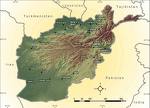Leaving Afghanistan by Staying

Is staying in Afghanistan OK with you as long as we call it leaving?
President Obama has signed an agreement with President Karzai to keep a major U.S. military presence in Afghanistan (currently about three times the size Obama began with) through the end of 2014, and to allow a significant unspecified presence beyond that date, with no end date stipulated. Obama stresses that no permanent U.S. bases will be involved, but his agreement requires Afghanistan to let U.S. troops use “Afghan” bases.
Obama forgot to provide any reason not to withdraw from Afghanistan now, given majority U.S. desire to end the war. Like Newt Gingrich promising to quit campaigning before actually doing so, Obama is promising to leave Afghanistan, but not yet — except that he isn’t promising to ever leave at all. The agreement is open-ended.
Obama spoke on Tuesday of a transition to Afghan control, but we’ve heard that talk for a decade. That’s not some new bright idea that requires two-and-a-half more years to develop.
Obama talked of fighting al Qaeda, but the U.S. has not been fighting al Qaeda in Afghanistan, and has admitted for years that there is virtually no al Qaeda presence there. That’s not the two-year project, and it’s not the reason to remain indefinitely after 2014.
The agreement requires that all “entities” involved in a peace process renounce violence, but the Taliban will no more do that while under foreign occupation than the United States will do so while occupying. This is not a serious plan to leave. Nor is it a plan based on Afghan sovereignty, numerous claims to the contrary notwithstanding. This is a treaty for more years of war, on the model of the Bush-Maliki treaty for Iraq, but with the difference that theirs included an end date.
The agreement says it enters into force when “the Parties notify one another, through diplomatic channels, of the completion of their respective internal legal requirements.” The U.S. Constitution requires ratification by the Senate of all treaties. Congress could insist on its right to approve or reject this, just as the Afghan Parliament will be permitted to do. Or Congress could require withdrawal now, as does bill HR 780, which has 70 cosponsors.
The written agreement doesn’t mention it, but Obama said on Tuesday that he would withdraw 23,000 troops by the end of the summer, after which reductions would continue “at a steady pace.” Assuming 90,000 U.S. troops now in Afghanistan, a steady pace would get them all home by about a year from now, not two-and-a-half years from now. But Obama says that it will be the end of 2014, not when the last troop leaves, but when a significant number of troops remain, as Afghans become “fully responsible for the security of their country” — except for whatever it is that the U.S. troops will do.
Obama is full of praise for U.S. troops, as if they’ve benefitted Afghanistan. And he’s full of concern for the suffering of U.S. troops and U.S. citizens. When he mentions Afghans, at best he equates their suffering under U.S. bombs, drones, night raids, and prison cells, to the suffering of Americans scared by their television sets and forced to over-eat to relieve their stress. “Neither Americans nor the Afghan people asked for this war,” Obama said, forgetting that one of those two countries had invaded the other one and occupied it for over a decade. “The reason America is safe is because of you,” Obama told U.S. troops, forgetting that the war has made our nation more hated around the world.
This agreement is inexcusable. It’s also vague and preliminary. A more detailed treaty will be worked out on May 20th when NATO meets in Chicago. We need to be there en masse in protest.
David Swanson’s books include “War Is A Lie.”

